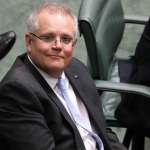Lawyers Must Fight for Human Rights

NSW Chief Justice Tom Bathurst spoke at the Law Society’s Opening of the Law Term dinner this month, raising concerns about the withering-away our most fundamental legal safeguards and protections.
In response to a recent inquiry by the Australian Law Reform Commission, Bathurst called upon lawyers to play a watchdog role in protecting laws which are integral to the nature and identity of our criminal justice system.
He highlighted the fact that laws which protect the presumption of innocence, the right against self-incrimination and client legal privilege are integral to both our justice system and society generally, saying that lawyers cannot just sit back and keep allowing these rights to be taken away by our politicians.
Bathurst’s review of NSW legislation found a total of 397 encroachments on these three protections alone; and he says this is a “conservative” figure based on very strict criteria.
Client legal privilege
Bathurst counted 162 provisions which “arguably abrogate the right to legal professional privilege”.
Although any removal of the right to private communications between a lawyer and client is a serious matter, Bathurst was particularly concerned about section 75V of the Crimes (Forensic Procedures) Act which, in certain circumstances, allows police to deny a person from having private communications with their lawyer if there is a danger of evidence being destroyed. He said:
“Unless the provision is implying that the destruction or contamination of evidence would be facilitated by communicating with an Australian lawyer-that is, by a lawyer clearly acting against the law and the professional ethics which bind them, there is, to me, no apparent rationale for this provision.”
Right against self-incrimination
There are 183 provisions which Bathurst says encroach on the right against self-incrimination – a safeguard which entitles a person to refuse to answer questions, or produce documents, that would tend to incriminate themselves.
Bathurst points out that this ‘right’ has been diluted by numerous express and implied legislative provisions, including:
“… a Part in the Terrorism (Police Powers) Act [which] limits the purpose for which someone can contact a lawyer when they are being preventatively detained. In those circumstances, the Part states that they may only be advised on their legal rights in relation to being detained.
Despite this, section 26ZQ states that to avoid doubt nothing in the Part affects the law relating to legal professional privilege. Given the otherwise clear limitations imposed on what lawyers may give advice on, this section, if anything, creates rather than avoids doubt.”
Presumption of innocence
Even the most fundamental protections have been repeatedly attacked by our politicians, including the presumption that a person is innocent until they are proven to be guilty. Bathurst counted 52 provisions which encroach upon this presumption, a situation which he sees as greatly concerning.
Former High Court Justice Michael Kirby described the presumption of innocence as a safeguard which:
“is deeply embedded in the procedures of criminal justice in Australia, inherited from England. It may even be implied in the assumption about fair trial in the Federal Constitution.”
Yet section 685 of the Local Government Act, as Bathurst notes, not only reverses the presumption, it goes so far as to allow for mere allegations to constitute sufficient proof. This means a person can be found guilty of a criminal offence by an accusation alone, unless they are able to prove themselves to be innocent.
Bathurst believes that these encroachments can produce grave injustices, place heavy burdens on individuals to comply with legal obligations, and cast doubt on the rule of law.
He recommends that lawyers publicise and criticise these governmental attacks on our fundamental safeguards with “honesty, diligence, and dispassionate advice,” and a “straightforward technician’s attitude to the task at hand.”






